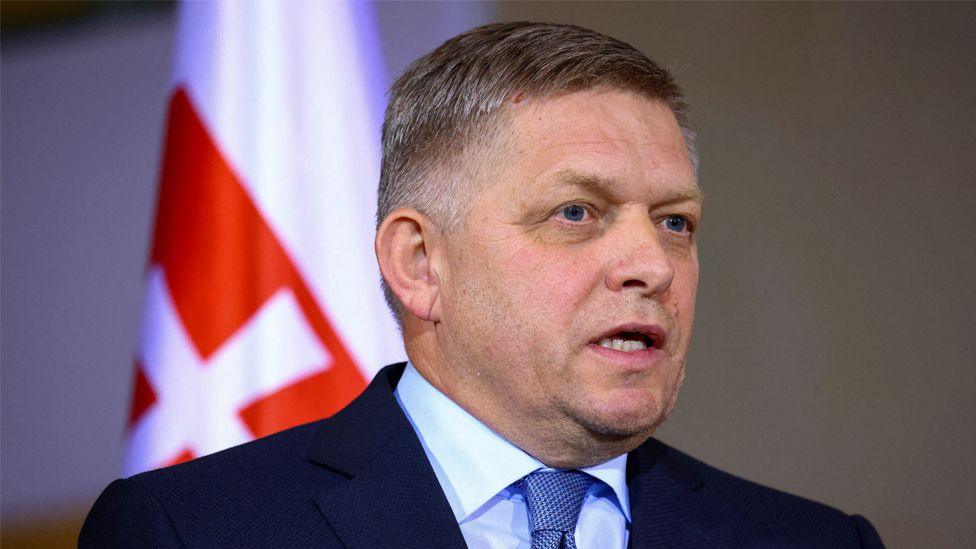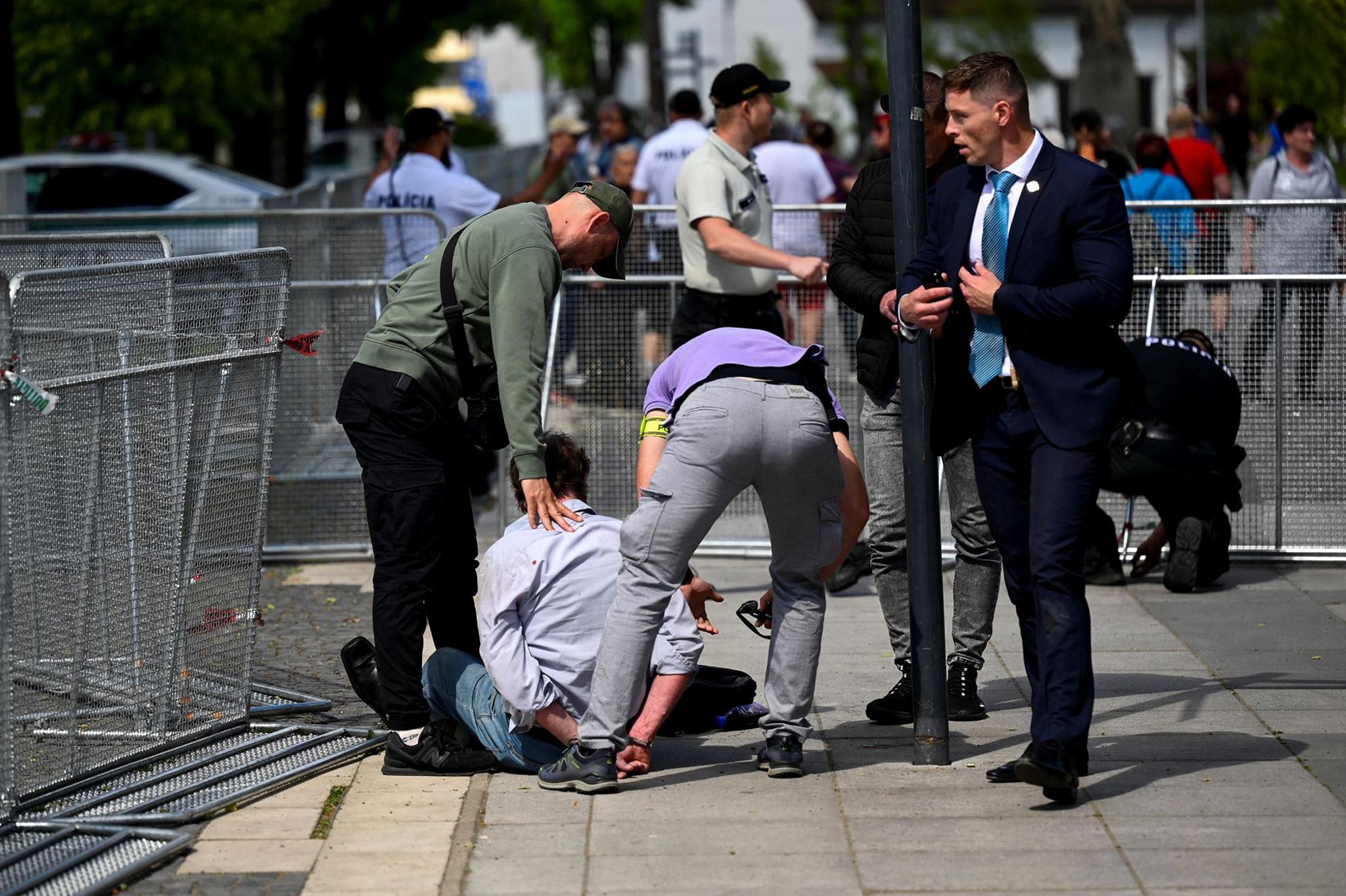Slovak PM Robert Fico fights for life after assassination attempt
Slovak PM shot in apparent assassination attempt
- Published
Slovak Prime Minister Robert Fico is fighting for his life in hospital after being shot in a small town north-east of Bratislava.
On Wednesday evening Defence Minister Robert Kalinak said Mr Fico had been in surgery for over three hours and that the situation was "bad".
Slovak politicians including the president have called the shooting an "attack on democracy".
The alleged assailant was detained at the scene but has not yet been formally identified by the authorities.
The attack happened at about 14:30 (12:30 GMT) in Handlova, about 180km (112 miles) from the capital Bratislava, as Mr Fico greeted people in front of a cultural community centre where a government meeting had been held.
Footage showed a man raising a gun and firing five times at the prime minister before being subdued by bodyguards while other members of Mr Fico's security detail took the prime minister into his car.
He was airlifted by helicopter to a nearby hospital before being flown to another hospital in Banska Bystrica, east of Handlova.
Later on Wednesday Slovakia's Deputy Prime Minister Tomas Taraba told the BBC's Newshour programme he believed Mr Fico's procedure in hospital had gone well.
"I guess in the end he will survive," Mr Taraba said, adding: "He's not in a life threatening situation at this moment."
How Robert Fico rose to dominate Slovak politics
- Published15 May 2024
At a press conference on Wednesday, Interior Minister Matus Sutaj Estok said Mr Fico had been shot in the stomach.
"Initial information clearly points to political motivation," he added.
Unconfirmed local media reports said the suspect was a 71-year-old writer and political activist.
A video being widely circulated on Slovak media purports to feature the suspect.
In the footage, the man says he disagrees with government policy and its stance towards state media. The BBC does not know if the person in the video is the perpetrator who was detained at the scene nor the circumstances under which it was filmed.

Mr Fico was visiting the town of Handlova when he was attacked
Slovakia's outgoing president Zuzana Caputova said something "so serious had happened that we can't even realise it yet".
"The hateful rhetoric we witness in society leads to hateful acts," she added.
Mr Kalinak and Mr Estok blamed the spread of hate speech on social media for the shooting and urged citizens not to "respond to hate with hate".
Mr Estok accused the media of contributing to the climate that led to Mr Fico's shooting, telling a press conference: "Many of you were those who were sowing this hatred."
He added that protection would be provided to constitutional officials as well as other groups who could be subject to similar attacks, including journalists and public figures.

A man was immediately detained by guards and bystanders in Handlova
Mr Fico, 59, returned to power in Slovakia after elections last September, at the head of a populist-nationalist coalition.
His first few months as prime minister have proved highly contentious politically. In January he halted military aid to Ukraine and last month pushed through plans to abolish public broadcaster RTVS.
Thousands of Slovaks have protested against the proposed reform of the public broadcaster in recent weeks. However, a planned opposition-led demonstration was called off on Wednesday as news of the shooting emerged.
Parliament was sitting at the time of the attack and Slovak media reported that a party colleague of Mr Fico's shouted at opposition MPs, accusing them of stoking the attack.
President-elect Peter Pellegrini, who is a political ally of Mr Fico's, said he was horrified to hear of the attack and also blamed the shooting on recent political divisions.
Describing the attack as an "unprecedented threat to Slovak democracy" he said people did not have to agree on everything, but there were ways to express disagreement democratically and legally.
World leaders have also condemned the attack on Mr Fico. US President Joe Biden condemned the "horrific act of violence" and said the US embassy was in "close touch" with the Slovakian government and was "ready to assist".
Russian President Vladimir Putin said there could "be no justification for this monstrous crime". European Council President Charles Michel said "nothing can ever justify violence or such attacks".